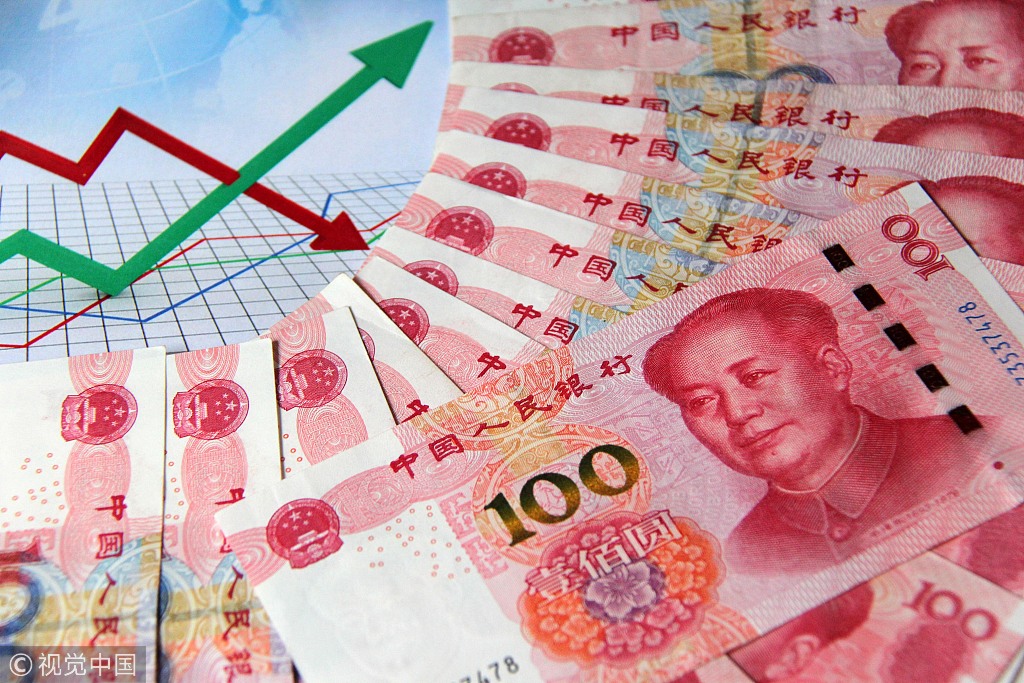Finance minister outlines plans for control of local debt


China will tighten control on local government debt, especially to curb risks arising from "hidden debt", to maintain financial stability, Finance Minister Liu Kun said on Tuesday.
The country will push forward the local government debt swap program - a way to repay the outstanding debt using money collected through issuing bonds. That will be the key measure to prevent an increase in hidden debt, experts said.
Liu made the remark at a meeting of the National People's Congress Standing Committee in Beijing while delivering a report on the government's budget enforcement. He said that in the next step, the country will speed the development of a "long-term supervision mechanism" on local government debt.
"All forms of borrowing and financing guarantees that violate the country's laws and regulations are strictly forbidden," he said, urging efforts to amend irregularities in government investment funds, public-private partnership programs and government procurement of services.
Local construction projects that have difficulty repaying loans should be constrained. Also, provincial-level governments will assume overall responsibility for debts incurred by local governments within their jurisdictions, the minister said in the report.
Sources had confirmed to China Daily earlier that a document on further inspection of hidden local government debt, particularly that incurred since 2015, would be released soon by the central authority.
The document is meant to push local governments to check the size of their off-budget debt and evaluate the quality of their debts and assets, said the sources.
Signals showed the policymakers' determination to crack down on financial risk, the priority of the "three tough battles" until 2020, said Qiao Baoyun, head of the Academy of Public Finance and Public Policy at the Central University of Finance and Economics. The other two tasks are reducing poverty and tackling pollution.
Market-oriented measures, including asset restructuring, bankruptcy liquidation and injecting private funds, are expected to transform local government financing vehicles, which involve off-budget financing, Qiao said.
In the past two quarters, due to tighter regulations imposed in late 2017, the country's total public-private partnerships' project value contracted by 6 percent to 17.2 trillion yuan ($2.53 trillion), according to global credit rating agency Fitch Ratings.
"The (central government's) intention to control public sector leverage remains unchanged," said Becky Han, associate director of the agency's corporate department. "As the authorities are still committed to containing financial risks, this should avoid further significant increases in leverage and pressure on credit profiles at local government financing vehicles and State-owned enterprises."
The Finance Ministry said further measures have been taken this year to curb local government hidden debt and off-budget fundraising activities. The measures included limiting financial institutions' lending to local governments and State-owned companies, as well as tightening corporate bond issuance.
Some illegal cases have been found and reported after inspections, and local government officials involved have been punished.
This year, the annual quota of local government debt was increased by 2.18 trillion yuan over last year. The increment is to ensure adequate financing for local governments' large public welfare projects, economists said.
In the first seven months, the country's fiscal revenue was 12.18 trillion yuan, up by 10 percent year-on-year. Of that, 10.77 trillion yuan was from tax income, increased by 14 percent from a year earlier, according to the budget enforcement report. The fiscal expense was 12.55 trillion yuan, up 7.3 percent year-on-year, 59.8 percent of the annual budget, it said.




































